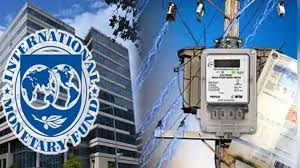Islamabad, JULY28: The proposed plan from the federal government to postpone raising the monthly electricity costs of customers utilizing 201–400 units has drawn considerable opposition from the International Monetary Fund (IMF).Recently, Prime Minister Shehbaz Sharif proposed delaying the price increase by Rs. 7.12 per unit for three months and gave the Ministry of Finance and the Ministry of Energy three months to come up with a plan and get the agreement of the IMF.
The IMF has warned that postponing the price increase for middle-class consumers may interfere with energy sector commitments pertaining to yearly base tariffs and circular debt reduction. After the current hike, almost 2.8 million residential consumers who rent units between 201 and 400 pay substantially more than the average of Rs. 33 per unit. With a new rate of Rs. 34.26 per unit, the government’s decision to raise prices by Rs. 7.12 per unit impacts 2.2 million consumers who use 201 to 300 units. The new tariff, exclusive of taxes and levies, is Rs. 39.15 per unit for users of 301 to 400 units.
The vast majority profited from the government’s prior decision to postpone the hike by up to 200 units, albeit only temporarily.The World Bank, the IMF, and succeeding governments have all made economic decisions that have made energy prices prohibitive; following the recent jump, an average unit now costs Rs. 70. Pakistan had already requested that the electricity bills for August be spread out over six months, but the IMF had declined the request, indicating its strong opposition to short-term relief measures.
As part of an emergency plan, the government is also thinking of stopping to provide free electricity to judges, MPs, bureaucrats, and government officials. The strategy can also involve lowering factory Maximum Demand Indicator (MDI) fees and doing away with free gasoline.
